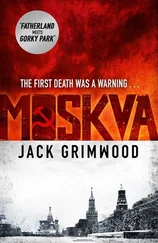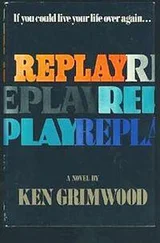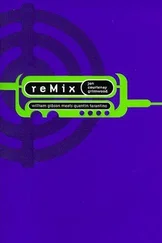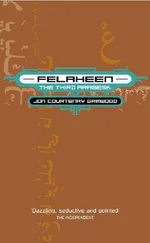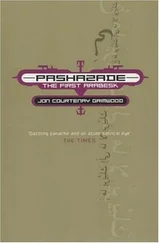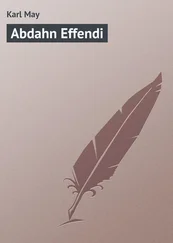Just inside the gate stood a security hut, mirrored glass in its only window, looking out at a road that led from the gates to a loading bay, where a pull-down shutter was locked to a clasp set in concrete. The loading bay clasp was properly padlocked.
Mike shrugged. The key would be where those keys always were. Hung on a board inside the hut, should he need it, which was unlikely. So far so predictable . . .
The grey card he’d used on the little Mazda also worked for the door of the security hut. Whoever had decided to replace a standard Chubb with a Japanese box had made a bad mistake. It was still way harder to pick an old-fashioned mortise than jazz some chip, probably always would be.
Inside, the hut was the usual clutter: a microwave, so old its inside was enamelled with fat, a stained Braun coffeemaker, five mugs, none of them matching, no saucers and more discarded packaging around the plastic swing bin than inside it.
The man sighed. This was why he’d never taken to fieldwork . . . “Clean the mess up,” he told the girl and she nodded.
“All done now.” Her voice was matter-of-fact, as if she found nothing odd in having happily picked up someone else’s rubbish, scrubbed down all the work surfaces and cleaned out the inside of an old microwave; but then the drugs ensured there was nothing odd about the situation for her to find.
“Good girl.”
Closing his borrowed copy of Hustler, illegal in all of North Africa, if slightly less illegal in El Isk than most other cities, Mike stretched, pushed himself up from where he sat and walked across to where the American girl stood smiling.
At 5.49A .M. Saturday morning. The Quitrimala Casino. The call to prayer had come and gone. It was time, more or less.
Dawn had broken by the time he locked the hut door behind him.
Dawn had . . .
Mike smiled tightly at his own joke and stretched the fingers of one hand, like a concert pianist doing postperformance exercises. Then he turned his head from side to side, trying to reach the pain in his neck.
In his other hand he carried a heart and two dripping lungs; they weighed more than he expected.
“Hey, dipshit . . .” The insult was light, contemptuous. The accent a mix of street rough and faux polite. What was most unnerving was that the boy behind him chose German, Mike’s original language.
Slowly, very slowly, Mike turned. As he did so, his free hand swung down, reaching for a holster hidden on the back of his belt.
“I don’t think so . . .” The boy with the magenta dreads jerked his own automatic and Mike’s hand froze. He was remembering.
“The club,” said the boy with the noisy gold earbead. “In the corridor.”
The man remembered. The group of students, with one lagging at the end. Their eyes meeting, that knowing nod. It hadn’t been about the girl, or rather it had, just not in the way he’d thought.
“And before that,” said Avatar. He popped silver contacts from his pupils and dumped them and a magenta wig onto the tarmac. “On a roof at Sarahz, remember? You were pretending to be English.”
Adjusting his earbead, Avatar faded out some weirdshit track about dogs, boats and guns.
“You’re not police?” Mike’s eyes widened.
“ Les merde? You’d be so lucky . . .” Avatar’s smile was grim. “I command a brigade of Action Directe . . .”
“You’re military . . . ?”
Avatar sneered, with all the arrogance of someone whose fourteen years had seen things that made growing up fast the only safe thing to do. “Anarcho-Marxist-Syndicalist. If anyone strips this city back to its machine code it’s going to be us . . .”
“You’re too late,” said Mike. “Another dead American. Another burst of outrage.”
Avatar’s gaze flicked towards the grisly relics in the man’s hand. He’d been working on the assumption that rape would precede killing, probably carried out slowly and methodically given the almost feline cruelty of the man’s earlier behaviour.
Making a wrong call wasn’t something Avatar liked.
“Drop the offal and empty your pockets.”
Avatar waited while the man took out a disposable camera, cigarettes, the flat electronic key, a cheap lighter and a small Japanese sushi knife that looked just like a child’s chopper.
“And the rest . . .”
“That’s it,” said the man, pulling his coat pockets inside out.
“Travel light, don’t you?”
Action Directe approved of travelling light. No baggage, emotional, literal or political; all three were known to slow down the response time between opportunity and action. And yet, personal was political, according to Zara.
How was Avatar to know if his decision to act owed its driving force to the fact this man was obviously Thiergarten, and thus an enemy of progress, or to the fact that the girl butchered on the beach at Villa Hamzah had, in some way, been a warning to Avatar’s father, whose politics were definitely not Avatar’s own?
And then there was Raf, who was merde himself but who had saved Avatar’s life, something Avatar hadn’t yet admitted to the old man.
The boy shook his head.
“Just give me the pills,” said Avatar and waited for Mike to unbutton the first two buttons of his shirt. They both noticed that Mike’s hands trembled as he handed over his pouch.
“Open wide.” Avatar held out a tiny purple kite and raised his gun until it touched the underneath of Mike’s chin. The metal was cool against the German’s early-morning stubble.
The man swallowed his fate.
“Pick up the offal and walk,” said the boy.
The door to the cargo bay opened easily, though the man no longer had the capacity to be surprised when the boy produced a spare key from his own pocket and unclicked the padlock, sending the metal shutter scrolling skywards in a rattle of metal machine music.
“Rust Never Sleeps . . .”
Avatar had named his brigade after an ancient CD found in a market. Weird shit, of the best kind. He’d sampled the tracks he wanted and given the CD to Zara. She’d said nothing about it since, so he figured it just wasn’t her taste.
It took Avatar and the man more than ten minutes to find spare cylinders of butano and drag them from the kitchens up to the loading bay. There were seven in total. Each one large, orange and as heavy as Avatar, maybe heavier. After that came huge blocks of lard to be smeared around the casino, vats of margarine and a couple of industrial-sized containers of ghee. Then methylated spirits on the stairs, used to fuel fondue heaters, the flashy old-fashioned kind.
“You see those?” Avatar pointed to cans stacked against a kitchen wall, each one full of maize oil. The casino might boast two world-class chefs, poached from the SS Jannah, but half of the visiting punters still stuffed themselves with freshly cooked chips sprinkled with paprika. The Soviet half . . .
The German nodded.
“Pour them on the hall carpets and come back here when you’re finished.”
Avatar’s first idea had been to let the man do all the work, but carrying the butano had been a job for two and time was running out . . . For himself and the city, for his father, even for the General if the word in the alleys was true. And Avatar trusted what he heard on the streets because that was where he belonged, no matter how much Zara wished it otherwise.
As for this casino. He didn’t approve of casinos or the people they attracted. And he didn’t want it.
“. . . Finished now.”
Avatar smiled at the German and beckoned him closer. Childlike eyes looked into his as the man smiled back. He’d just gutted a girl, Avatar had to remind himself. A girl whose ripped-open corpse was in a hut not fifty paces from where he stood, probably with his father’s initials cut into her wrist.
Читать дальше

